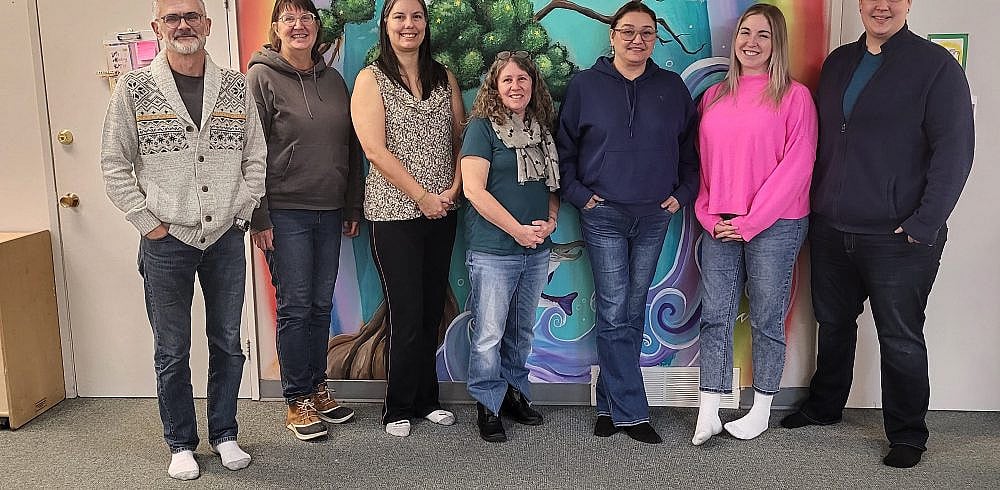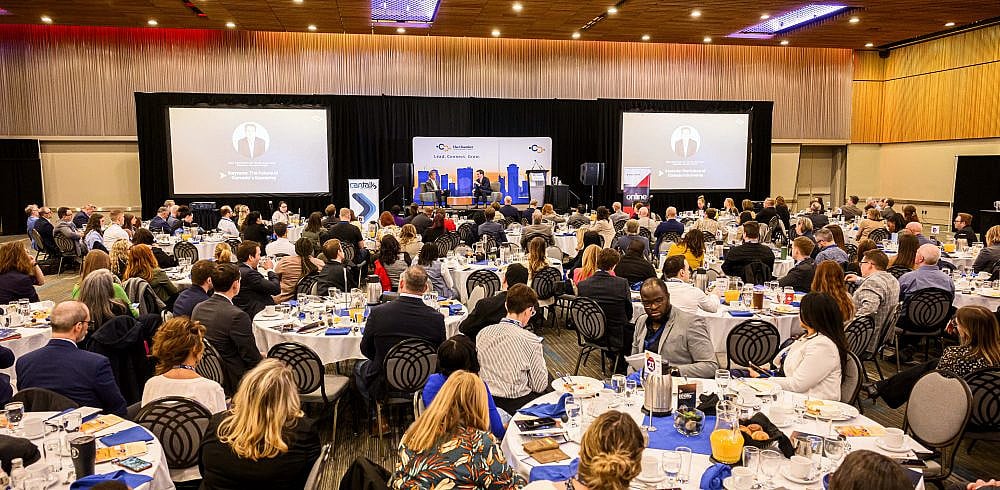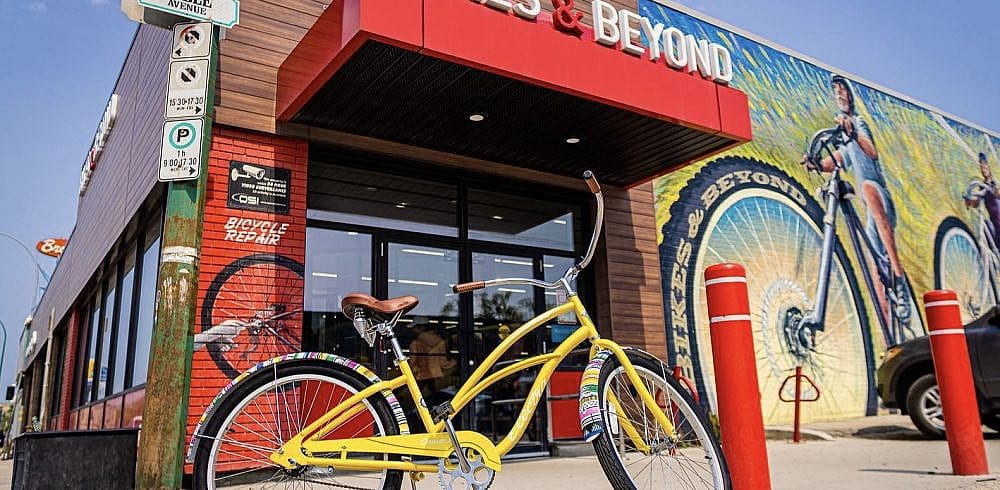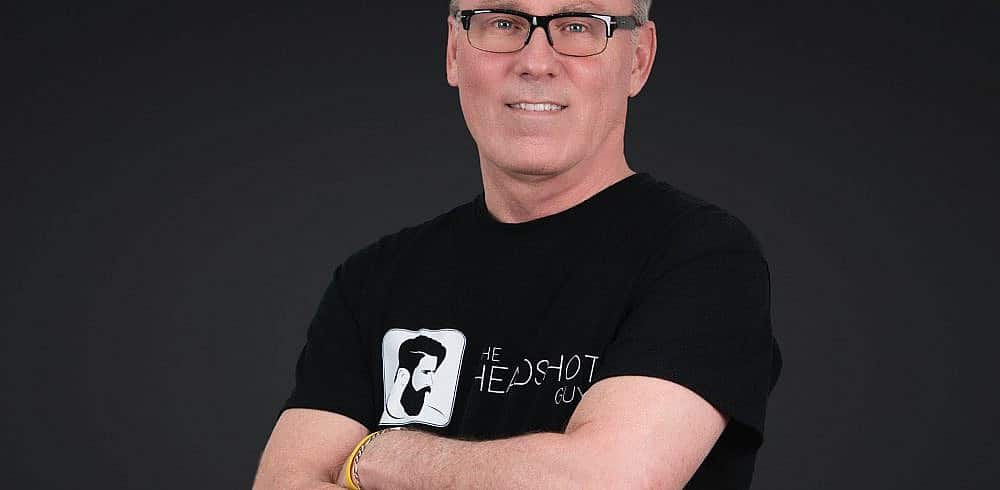Meet Sanjana Vijayann, our newest Diversity and Inclusion Manager here at The Winnipeg Chamber of Commerce. The Winnipeg Chamber is only the second Chamber in Canada to have a staff person dedicated to diversity and inclusion.
With one year into the pandemic, Sanjana discusses the devastating impact COVID-19 has had particularly on racialized communities. She shares how we have the chance to rebuild, and lead an economic, social transformation that centers around the most impacted.
With her role at The Chamber, Sanjana will help provide the Winnipeg business community with the resources and guidance they need to become more resilient while championing diversity, inclusion and equity.
Written by Sanjana Vijayann, Diversity and Inclusion Manager – The Winnipeg Chamber of Commerce
Over the past year, we have seen the hard-fought progress towards equity wiped out or significantly disrupted. It is evident that it is not race that increased the likelihood of being most impacted by COVID-19, but rather the structures within which we operate, and the social positioning of races that determines access to resources, services, and opportunities.
The COVID-19 pandemic has heightened existing inequalities that equity-deserving groups already experience.
 The Canadian Women’s Foundation reports that unemployment rates among racialized workers has significantly increased compared to non-racialized workers. In fact, the employment gap between racialized and non-racialized groups has grown to 92%. The industries in which most equity-deserving groups are employed were also most impacted by the economic shutdown, particularly retail, food services, and accommodation. Newcomer Canadians faced 17% employment loss, racialized groups faced 16% employment loss, and Indigenous workers faced employment loss of 14%. (Canadian Poverty Institute)
The Canadian Women’s Foundation reports that unemployment rates among racialized workers has significantly increased compared to non-racialized workers. In fact, the employment gap between racialized and non-racialized groups has grown to 92%. The industries in which most equity-deserving groups are employed were also most impacted by the economic shutdown, particularly retail, food services, and accommodation. Newcomer Canadians faced 17% employment loss, racialized groups faced 16% employment loss, and Indigenous workers faced employment loss of 14%. (Canadian Poverty Institute)
Winnipeg was not immune to the devastating impacts of COVID-19 on the community at large, and its business community.
Unemployment in Winnipeg reached a record high of 12% in June 2020 and young adults, women and people in low-wage jobs were the most affected by job loss.
The Winnipeg Chamber of Commerce surveyed 358 businesses in Winnipeg where 24% businesses reported more than a 50% decrease in revenue, with 43% of business owners anticipating it taking more than a year to reach its pre-pandemic (usual) state of operations.
A feminist recovery that centers around the most impacted communities is necessary to create a more robust, more resilient economy that better serves people and the planet. Targeted and responsive action is also required to support businesses to adopt measures that improve their resiliency, competitiveness, and human capital.
Governments, businesses, and individuals alike must have these difficult conversations and look at the policies, procedures, and practices we maintain. Without this, the structural racism that persists in our society will continue to produce racist outcomes inevitably.
As businesses rebuild after the impact of COVID-19, some organizations are hiring, and others are contracting their workforce.
Through this process, businesses should consider how they will integrate new workers, how services and service delivery might be changed, and how workers’ needs have changed.
The pandemic has posed an opportunity for businesses to reengage with the workforce and reinvent their workplaces for the better. 
A survey found that among organizations that embraced the values of diversity and inclusion, they were 7 times more likely to adapt to change, 8 times more likely to satisfy and retain customers, and 12 times more likely to engage and retain employees.
This is the moment that calls for social, economic, and technological transformation. As businesses rebuild, and transform their way of doing things, they can support our advancement towards reconciliation, anti-racism and equity.
With my role here at The Chamber, I will work to create and support businesses with the resources they need to pivot.
Resources will look like the creation of a roadmap that lays out concrete steps that businesses could take to truly integrate diversity and inclusion into their workplace, or hosting programming and events that respond to the current needs of businesses.
As we begin to map out this role, and create resources that are responsive to your needs, I would love to connect with you. I want to hear from you about how your past year has been, how your business plans to commit to diversity and inclusion, and what we can do to help.
Please reach out to me at [email protected]. I look forward to supporting you on this and advancing equity.




